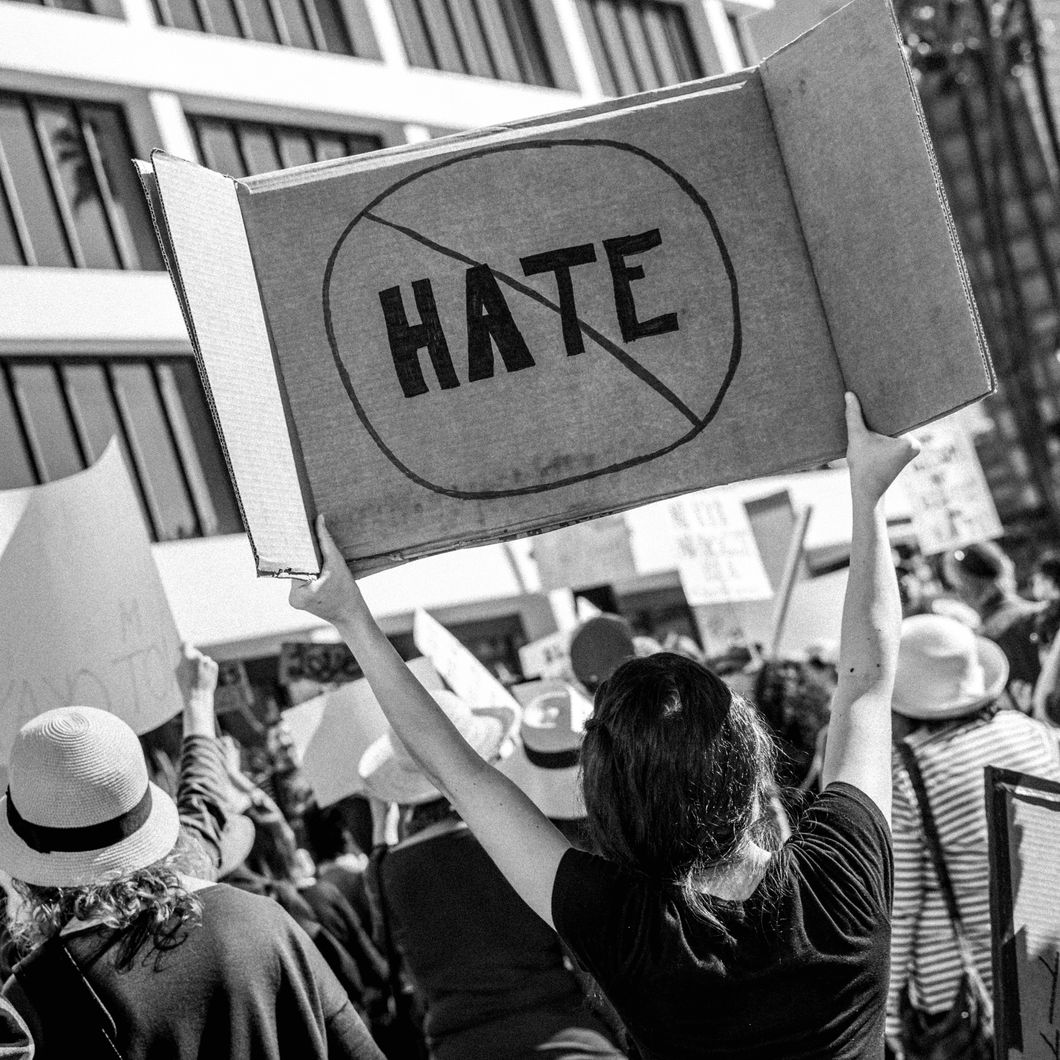Calling People Hateful Is Not A Productive Dialogue
Universities have become a breeding ground for intolerance.
The political climate is rough. I don't enjoy commenting on it because of how controversial it has become. Every once in a while, however, I come across something that rubs me the wrong way.
As I was walking through campus the other day, chalked on the side of a cement wall was a phrase claiming the College Republican club on campus was a hate group. I don't know anything about the person who wrote this statement or anything about the College Republican group on campus, but I do know one thing: this statement is false.
Universities have become a breeding ground for intolerance.
Just because someone has a different opinion from you doesn't mean they are hateful. There is room for disagreement.
A psychology professor of mine once said something that impacted my perspective toward both political parties: "Both sides think they're right, but both sides can't be right." Both sides make decisions based on what they think is right. A person's opinion is not "wrong" if it differs from yours. It's just different.
It's important to recognize that people won't always agree with you, and that's okay. That doesn't give you the right to call them mean or hateful. It allows an entrance into discussion. Besides, if you want to persuade someone that your belief is more accurate, name calling won't get you anywhere. It will only cause the other person to view you as inconsiderate and unwilling to understand.
How can you convince someone to believe you when you won't listen to their perspective? How can you expect people to listen to you when you won't do the same in return? Not only is it important to recognize a person's beliefs, it's important to understand why they believe what they do.
In order for people to engage in productive dialogue, both sides need to listen to each other and respect each other. Tossing labels around progresses nowhere and doesn't benefit anyone.





 https://www.pexels.com/photo/man-and-woman-shaking-hands-in-middle-of-brown-wooden-table-1265902/
https://www.pexels.com/photo/man-and-woman-shaking-hands-in-middle-of-brown-wooden-table-1265902/
 https://www.pexels.com/photo/person-writing-on-white-book-1043514/
https://www.pexels.com/photo/person-writing-on-white-book-1043514/ https://www.pexels.com/photo/white-paper-with-people-diagram-print-900108/
https://www.pexels.com/photo/white-paper-with-people-diagram-print-900108/ https://www.pexels.com/photo/man-wearing-suit-jacket-sitting-on-chair-in-front-of-woman-wearing-eyeglasses-1089563/
https://www.pexels.com/photo/man-wearing-suit-jacket-sitting-on-chair-in-front-of-woman-wearing-eyeglasses-1089563/

































